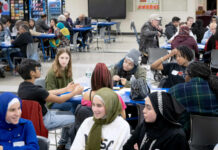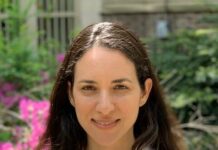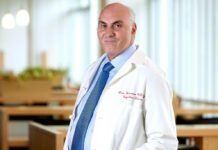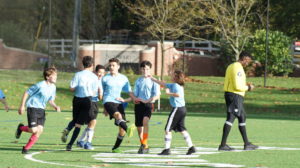
For local Jewish schools, pandemic-era restrictions like masks and physical distancing are part of the daily routine at this point.
But despite those inhibitors to human connection, students are connecting again in their schools, just like they did before March 2020.
That’s because, with most teachers and eligible students vaccinated, administrators have brought back the full lineup of clubs, sports and other activities.
In 2021-’22, schools are communities again.
“There’s a buzz that we didn’t have last year,” said Rabbi Ira Budow, the head of school at the pre-K-eighth grade Abrams Hebrew Academy in Yardley.
Last year, Abrams students stayed in their classrooms all day, and teachers came to them.
There were no lunches in the cafeteria, no art or music classes and no sports or clubs.
Abrams had one basic mission: get through an in-person school year. Everything else was secondary to avoiding the virus, Budow said.
None of the COVID vaccines had Food and Drug Administration approval until December. Even after they gained emergency use authorization, they weren’t available to teachers and teenagers for several months.
“So everybody was under pressure,” Budow said. “We’re going to school; we’re not protected at all.”
This year, it’s the opposite feeling.
Vaccinations have brought peace of mind. Cafeteria lunches have restored loud, lively lunch tables. Activities have revitalized student interests that transcend class subjects.
Only the masks remain as the obvious, undeniable sign that COVID is still alive.
“Everything else is back to normal,” Budow said.
Christie Chiantese, who teaches second grade and middle school language arts, explained that it’s vital for Abrams to be a community and not just a school.
“When you feel like you’re part of a community, you tend to do more, be more, give more,” she said.
But local Jewish schools wouldn’t be able to pull this off without sound protocols, mostly developed during the uncertain 2020-’21 school year.
After the pandemic spring of 2020, which forced schools into the digital space, the Kellman Brown Academy had one chief priority for the following fall. Open, and stay open.
“To teach students in the safest way possible and also in the most normal way possible,” said Rachel Zivic, KBA’s head of school.
The pre-K-8 institution in Voorhees, New Jersey, came up with a strategy that it still uses in 2021-’22.
Have parents fill out a health questionnaire every morning on an app. Keep students at a 3-6 foot distance. Enforce masking.
KBA has not had a COVID case since reopening in the fall of 2020. Over the last two years, it also has welcomed more than 100 new students.
Zivic attributed some of the increase to the school’s ability to pull off a safe, in-person year during COVID. She said some of those new students came from public schools.
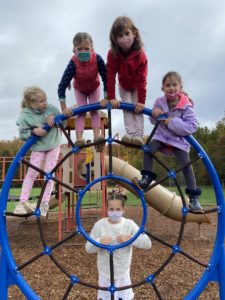
“Everything was new last year, so we were inventing the wheel,” Zivic added. “This year, we have a template.”
The head of school is prepared to continue her approach for as long as she needs to, and other administrators said the same. But just like the initial approval of vaccinations, there is now another possible “light at the end of the tunnel.”
That would be vaccinations for children ages 5-11, which the FDA approved Oct. 29, according to media reports. The federal agency only granted emergency use authorization to the Pfizer vaccine, not the other two.
Local school leaders plan on encouraging vaccinations for young students. Several institutions, including Abrams, KBA and the Jack M. Barrack Hebrew Academy in Bryn Mawr, are even going to host vaccine clinics.
“Vaccinations are one of the key mitigation efforts that will enable us to return to normal,” said Amy Buckman, the director of school and community relations for the Lower Merion School District.
But, as Barrack’s head of school, Rabbi Marshall Lesack, put it, even inoculating the younger age group may not lead to the end of the pandemic. Local districts are prepared for COVID “to be with us for a while,” he said.
At the same time, school leaders think students can handle that. Administrators are not seeing restriction fatigue among students — like kids ripping masks off.
According to Besie Katz, the head of school at the Politz Hebrew Academy in Northeast Philadelphia, COVID is no longer consuming the life of a school.
“It’s part of our life,” she said.
[email protected]; 215-832-0740



